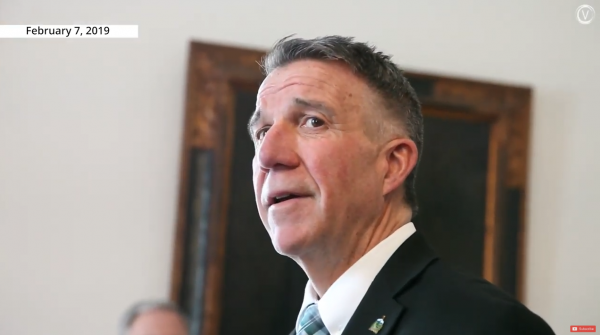Vermont Gov. Phil Scott reinforced the state’s gun rights reputation by using his veto pen on legislation that would have created a 24-hour waiting period to purchase a handgun.
The Republican governor vetoed the legislation despite pressure from gun control lobbying groups to sign, on the grounds that they believe it would help reduce suicides and maybe homicides.
According to the Centers for Disease Control and Prevention, a study released by Harvard Business School in 2017 said waiting periods “were associated with a 17% decrease in gun homicides and a 7% to 11% decrease in gun suicides per year.”
However, waiting periods have not prevented some high-profile shootings in recent memory. The killer in Virginia Beach bought the handguns he used in 2016 and 2018, so a waiting period would have been moot. Isla Vista killer Elliot Rodger bought three handguns, passing three different California background checks and waiting periods. He killed six people in a rampage, three with firearms and three by stabbing them fatally.
Gov. Scott’s action came about a year after Vermont, which has always been considered the top gun rights state, actually adopted some restrictions on gun owners, according to ABC News. The gun-owning governor told reporters that he believes the Green Mountain State’s gun laws are sufficient.
Gun control proponents who wanted a waiting period were “disappointed,” ABC News reported. The story quoted one couple who lost a sun to suicide, using a gun he purchased earlier on the same day.
“While we know this bill would not save everyone, by disrupting access to the most lethal method, it would have saved some,” wrote Rob and Alyssa Black in an email. “This bill would have saved our son; it could have saved yours.”
Vermont has long been known for its lack of a permit or license requirement in order to carry a firearm for personal protection or any other legitimate reason. For years, gun rights activists insisted that “Vermont-style carry” is the ideal, and the so-called “constitutional carry” movement has grown from that.
Rights activists opposed the legislation, arguing that it represented an encroachment on an enumerated Constitutional right. They said the law wouldn’t accomplish anything.




